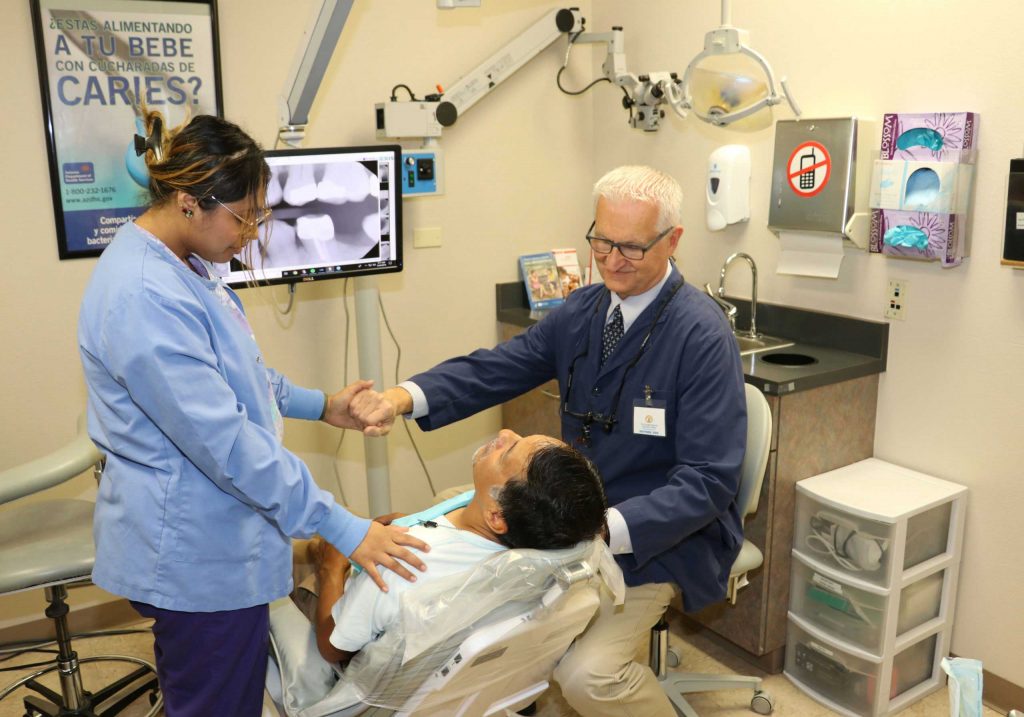Healthcare often focuses narrowly on treating physical ailments—but what if healing encompassed more than just the body? Faith‑based healthcare embodies whole‑person care, addressing not only physical but also emotional, social, and spiritual needs.
At the Neighborhood Christian Clinic, faith‑based healthcare means redeeming healthcare through the power of Christ, ensuring that every patient is cared for with dignity, compassion, and the opportunity to experience spiritual healing as well as physical restoration.
Healing More Than Physical Ailments
The Clinic recognizes that many people come broken not only in body but in spirit, mind, and relationships as well. Medical care that treats only symptoms may leave deeper wounds unaddressed. Faith‑based healthcare changes this by recognizing that “healing the body isn’t enough.” Real restoration involves caring for the whole person—and only then is true healing possible.
A Compassionate, Gospel-Centered Model
Within faith‑based healthcare, spiritual care is offered with sensitivity and patient consent. At the Clinic, staff and volunteers are open to sharing the Gospel and praying with patients—but never force it. Each care provider is trained in whole‑person care to discern when it’s appropriate to offer spiritual encouragement and share Christ’s love.
Equipping Providers to Practice with Purpose
The Clinic doesn’t just offer care—it trains other providers to do the same. Its Whole Person Care Program is a free, interactive, five‑course curriculum (developed in partnership with Grand Canyon University) that equips healthcare professionals to care for the whole person and share the Gospel respectfully, in any healthcare context.
This curriculum covers spiritual care from multiple angles—biblical foundations, ethics, legal considerations, and practical strategies—empowering providers to incorporate faith into clinical encounters thoughtfully and lovingly.
Serving the Uninsured and Underserved
Since its founding in 1999, the Clinic has been committed to serving the uninsured and underserved with high-quality, compassionate care. Its faith‑based model ensures no one is turned away—and that each person is honored as a whole being, not just a medical case.
By combining medical excellence with spiritual compassion, the Clinic reaches more people with healing for today—and hope for eternity.
What Faith-Based Healthcare Looks Like at the Clinic
| Key Feature | Description |
| Holistic Care | Addresses physical, emotional, social, and spiritual needs—not just medical symptoms. |
| Spiritual Sensitivity & Consent | Staff trained to offer Gospel and prayer only when invited and appropriate. |
| Free Provider Training | Whole Person Care Curriculum equips healthcare workers to integrate faith into practice. |
| Serving the Vulnerable | Dedicated to treating uninsured and underserved individuals with dignity and compassion. |
Why Faith-Based Healthcare Matters
- Restores Wholeness: Healing becomes transformative when spiritual and emotional needs are met alongside medical treatment.
- Honors Dignity: Every patient is seen as a person worthy of love, not just a medical case.
- Extends Care Beyond the Clinic: Through training, the Clinic multiplies its impact by preparing other providers to offer faith-aware, empathetic care.
- Shares Eternal Hope: Physical help opens the door to sharing the Gospel, giving patients not just health but hope.
Faith-based healthcare, as practiced at the Neighborhood Christian Clinic, is more than treating disease—it’s about making Christ’s love tangible. It means restoring body, mind, and spirit, equipping others to do the same, and serving the vulnerable with generosity and grace.
If you’re a healthcare professional who desires meaningful purpose in your practice, or someone believing in healing through faith and service, consider exploring the Clinic’s Whole Person Care Curriculum, volunteering, or supporting this life-giving ministry.
